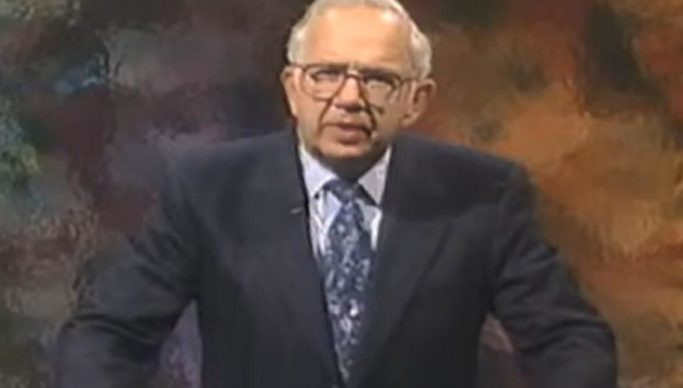
“Faithfully Yours, Harold Kushner”—When Bad Things Happen to Good People Author Leaves a Legacy of Faith and Reassurance
- By Lew Morningstar --
- 25 May 2023 --
Rabbi Harold Kushner’s faith was shaken. His 14-year-old son, Aaron, suffered and ultimately died from a rare condition known as progeria—rapid aging. Aaron was a good boy. He did nothing to deserve that death sentence. His father, too, had lived a life of service and good deeds—nothing to merit such a staggering loss. If God was merciful and good, the rabbi anguished, how could He allow such things as a Holocaust or the death of a child to happen?
The asking of that question led Kushner to pen When Bad Things Happen To Good People, the 1981 bestseller that crossed religious and nonreligious boundaries, offered comfort to those who had suffered and had also asked, Why?
Rabbi Harold Kushner, who died last month at age 88, had previously authored no books. His Natick, Massachusetts, Conservative congregation was not large, and his name was hardly a household word within the Jewish community. He was simply a grieving father who like so many other parents bereft of a child was groping for answers.
That search resulted in a work of solace and reflection, offering a possible answer: If we allow the fact that there is evil in the world, but we cannot bear the thought of a God who isn’t good and merciful, then the idea we must lose is that of an all-powerful God. An omnipotent God who willy-nilly punishes the righteous and the evil alike is irreconcilable with a loving God. Why not, then, allow for a God who stays His hand in the departments of free will—permitting us to choose our destinies, rightly or wrongly—and natural catastrophes—which follow an unchangeable path set in motion eons ago.
By thus re-creating God in Man’s image, making him not so all-powerful, Rabbi Kushner made a more approachable Deity, and therefore one who was more palatable to believe in.
When Bad Things Happen To Good People may or may not be the best-selling Jewish book of all time, with the possible exception of the Bible, as writer Jeffrey Salkin asserts, but, with 4 million copies sold, translated into at least a dozen languages and spending months on the New York Times bestseller list, the Rabbi’s meditation on the conflict of living in an imperfect world with a perfect Supreme Being occupies a special place in the hearts of many who, thanks to it, returned to the fold, their faith renewed.
Rabbi Kushner wrote other books where he tackled subjects such as the meaning of life, how to talk to your child about God, and coping with failure. His works, which include To Life: A Celebration of Jewish Being and Thinking, published in 1993—the go-to book for those considering converting to Judaism—Living a Life That Matters: Resolving the Conflict Between Conscience and Success, published in 1986, and Overcoming Life’s Disappointments, published in 2006,b are rich with his signature blend of faith and humanity alongside a gentle nod to reality and logic.
“I think that Rabbi Kushner was successful because he catered to everybody,” Carolyn Hessel, the director of the Jewish Book Council, said in 2017 when it revived the Lifetime Achievement Award to honor Kushner. “He reached everybody’s heart. It wasn’t just the Jewish heart. He reached the heart of every human being.”
Rabbi Kushner crafted his own best farewell toward the end of one of his later works, his 2016 Nine Essential Things I’ve Learned About Life:
Dear World, We’ve been through a lot together over the past eight decades, you and I —marriages, births, deaths, fulfillment and disappointment, war and peace, good times and hard times. There were days when you were more generous to me than I could possibly have deserved. And there were days when you cheated me out of things I felt I was entitled to. There were days when you looked so achingly beautiful that I could hardly believe you were mine, and days when you broke my heart and reduced me to tears. But with it all, I choose to love you. I love you, whether you deserve it or not (and how does one measure that?). I love you in part because you are the only world I have. I love you because I like who I am better when I do. But mostly, I love you because loving you makes it easier for me to be grateful for today and hopeful about tomorrow. Love does that.
Faithfully yours, Harold Kushner



















